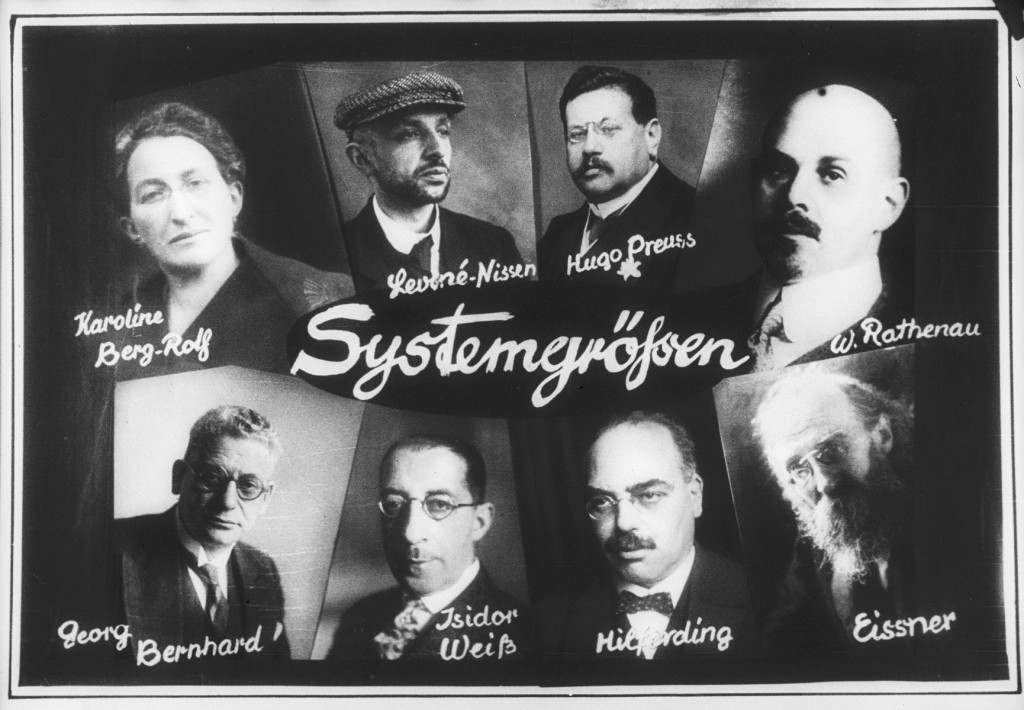Georg Bernhard
In 1933, Nazi students at more than 30 German universities pillaged libraries in search of books they considered to be "un-German." Among the literary and political writings they threw into the flames were the works of Georg Bernhard.
Excerpt
To the Seven Wonders of the World an eighth has joined in: Hitler's Germany. A relapse into medieval times yet simultaneously something unprecedented that can hardly be compared to anything else.
—Die deutsche Tragödie: Der Selbstmord einer Republik (The German Tragedy: The Suicide of a Republic), Georg Bernhard, 1933
Fire Oath

"Fire oaths" were statements to be read as books were tossed to the flames. The German Student Association sent out a circular containing these statements before the book burnings. The fire oaths then accompanied the burning of works written by the individual authors named in the statements.
Against the democratic-Jewish character of journalism alien to the nation
For responsible collaboration on the work of national construction
Theodor Wolff and Georg Bernhard
Who was Georg Bernhard?
Georg Bernhard (1875-1944), born in Berlin, was a prominent financial columnist, newspaper editor, and director of the prestigious Ullstein publishing house. From 1913, he was editor-in-chief of the Vossische Zeitung of Berlin. He wrote mostly about economic and financial news and issues. He was elected to the German parliament as a member of the German Democratic Party and was also active in Jewish community groups.
Because the Nazis declared that the ranks of German journalists must be "cleansed" of Jews, Bernhard fled to Paris via Copenhagen in 1933 before the book burning. In Paris he contributed to and edited the liberal exile journal Pariser Tageblatt. Bernard was interned after the German invasion of France, but was able to flee to the United States in 1941.
Critical Thinking Questions
- If Jews were the principal target during the Holocaust, why were books written by non-Jewish authors burned?
- How did the German public react to the book burnings? What was reaction like outside of Germany?
- Why do oppressive regimes promote or support censorship and book burning? Why might this be a warning sign for mass atrocity?

